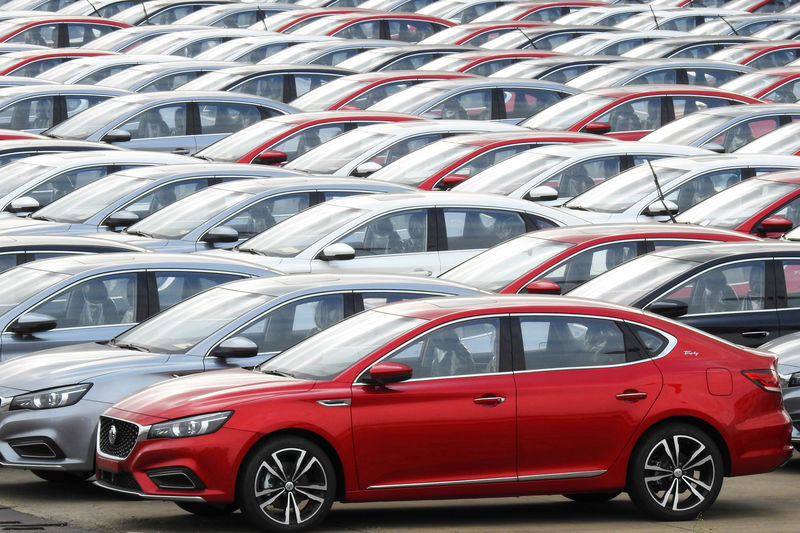BEIJING/SHANGHAI (Reuters) - Auto sales in China fell for a 15th consecutive month in September, data from the country's biggest auto industry association showed, dampening hopes for a second-half turnaround in the world's largest auto market.
Total auto sales fell 5.2% from the same month a year earlier to 2.27 million vehicles, the China Association of Automobile Manufacturers (CAAM) said on Monday.
That followed declines of 6.9% in August and 4.3% in July. Car sales in 2018 declined from a year earlier, the first annual contraction since the 1990s against a backdrop of slowing economic growth and a crippling trade war with the United States.
September and October, nicknamed "Golden September, Silver October" by China's auto insiders, are regarded as the high season for auto sales in the country, with customers traditionally returning to make purchases after summer.
The association had previously said it expected sales in the second half to improve, but that overall annual sales would fall 5% year-on-year to 26.68 million vehicles in 2019.
"Sales have risen in the second half but they have not hit expectations and the pace has been slow," said Chen Shihua, CAAM assistant secretary general.
As recently as three years ago automakers had enjoyed double-digit annual growth in China, before the brakes came on with the first annual contraction since the 1990s last year.
Fifteen cities and provinces which account for over 60% of car sales in China implemented new vehicle emission standards earlier than the central government's 2020 deadline, hurting sales particularly of traditional-fuel vehicles, according to CAAM, analysts, dealers and consumers.
Sales of new energy vehicles, which China has been a keen supporter of, have also been impacted by subsidy cuts, falling 34.2% in September following a 15.8% decline in August, CAAM said. NEV sales jumped almost 62% last year as the broader auto market contracted.

NEVs include plug-in hybrids, battery-only electric vehicles and those powered by hydrogen fuel cells.